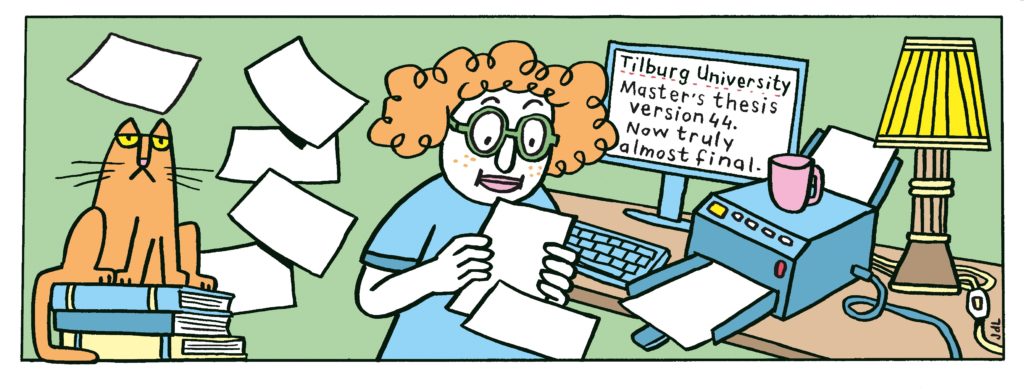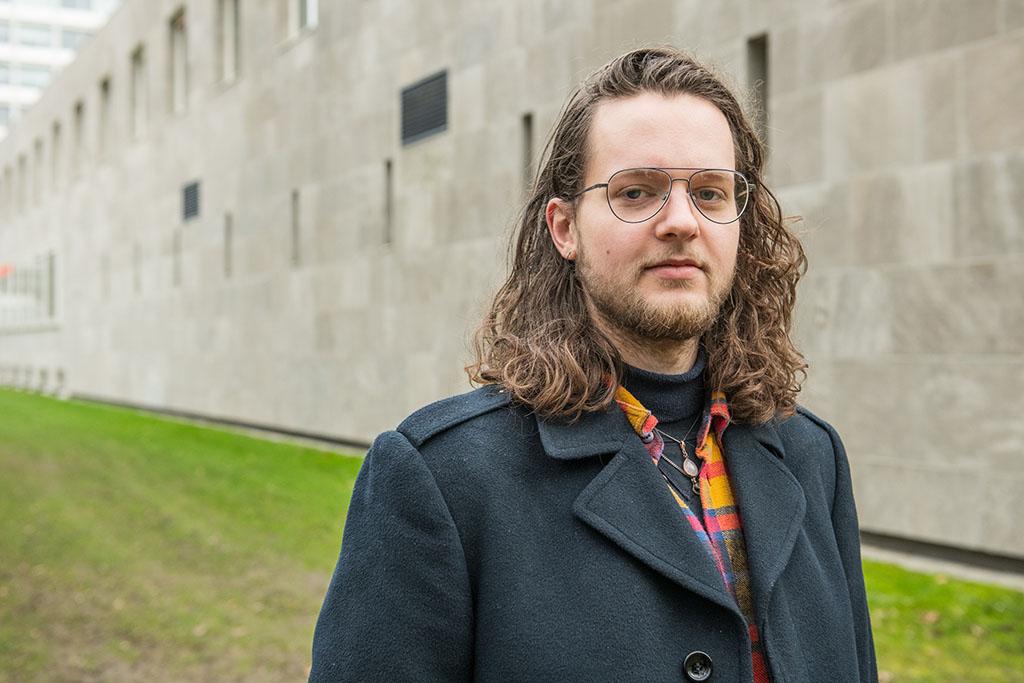To be invited to a job interview or not? It could be down to your name
A manager who does not invite someone to a job interview? Sometimes this is due to a bad hunch about someone’s name. ‘Computers can predict what associations people have with names and sounds,’ explains former data science student Aron Joosse in his Master’s thesis.

Where did the inspiration for your Master’s thesis come from?
‘I went to an exam inspection session of a course. Because I had gotten a good grade in this course, the lecturer asked if I wanted to write my thesis under his supervision. I was happy to do so. He then sent me literature of topics he was involved with, including ‘sound symbolism’.
‘I have an affinity with language and culture and like to learn more about it in my spare time. The choice to write a thesis on language, language associations, and algorithms was, therefore, quickly made.’
What is your thesis about?
‘In my thesis, I investigate sound symbolism. I look at what associations people have with certain sounds in names and words. An interesting field of research because sounds in names and words influence people’s choices. Consider, for example, a manager who does not invite someone for a job interview because he has a bad premonition about a certain name. This is really regrettable because that gut feeling does not have to be true.
‘In my thesis, I don’t question people, but see if computers can guess what associations people have with names and words. I make use of algorithms. That way, you can find out very quickly what association people have with a particular word.’
How did you handle that?
‘I model how people view certain names: do people think a particular name sounds masculine or feminine? Do they associate a name with a certain age group? Does it sound evil or sweet?
‘Take, for example, the fake names Brazarogh and Liselia. When you ask people what name fits a monster and what name fits a little girl, the largest group of people will connect Brazarogh to the monster and Liselia to the little girl. Both names are made up. It is highly unlikely that anyone knows them. Yet most people share the same connotations. That can be explained by sound symbolism.’

What is the outcome of your research?
‘The results show that algorithms can predict surprisingly well what associations people have with names and words. In my research, I used the algorithm ‘FastText’. This algorithm is part of a family of algorithms that can learn what a word means by looking at the context of a sentence in which the word appears. For example, consider coffee. Sentences in which the word ‘coffee’ appears also often contain words such as morning, drink, hot, and caffeine.
‘You could do the same for ‘beer,’ which is often associated with evening, drink, cold, and alcohol. By analyzing a large amount of text files, the computer makes a lot of connections. As a result, it understands that beer and coffee are related, since both have an association with the word ‘drink’. But it also knows that they are not the same: the times and temperatures are different.
‘This information is super useful. In the future, algorithms can be used to recognize and predict biases in (online) communication. However, this type of research is still in its infancy and is not currently being used. In addition, authors and screenwriters can use algorithms to come up with names that really fit their characters.
‘Finally, companies can use algorithms to create brand names that align well with their products and services. In this way, they can prevent the association evoked by a product’s name from diverging from the actual experience.’
Do you have a tip for upcoming thesis writers?
‘Before you start working on your thesis, take the time to explore the literature of your topic. That makes it much easier. If you already understand from the very first moment what kind of research field your thesis is in, you will more easily maintain an overview. So ask your thesis supervisor for literature tips.’
Master’s thesis
A literature review, experimenting in the lab, or getting into the swing of things with SPSS? Tilburg University students write the most diverse theses. In the Master’s Thesis section, Univers highlights one every month.
Author: Aron Joosse
Title: You Sound Like an Angry Old Man: Using Sound Symbolism to Model the Relation Between Names and Attributes of Fictional Characters
Supervisor: Dr. G. Cassani
Grade: 9
Translated by Language Center, Riet Bettonviel






